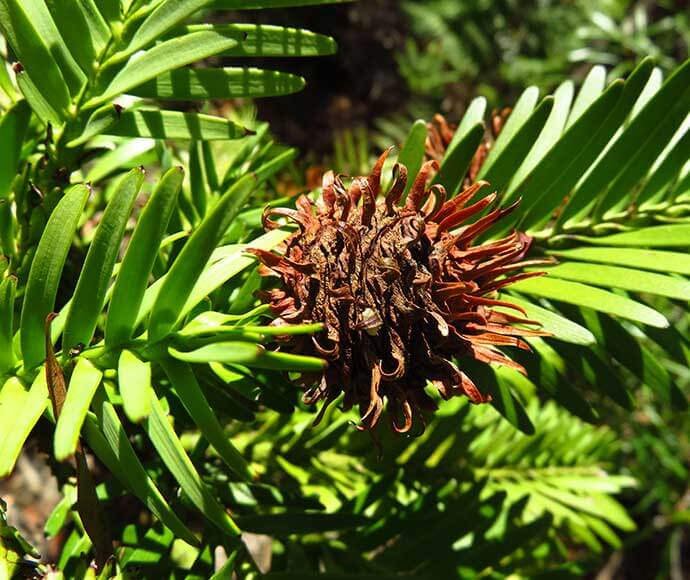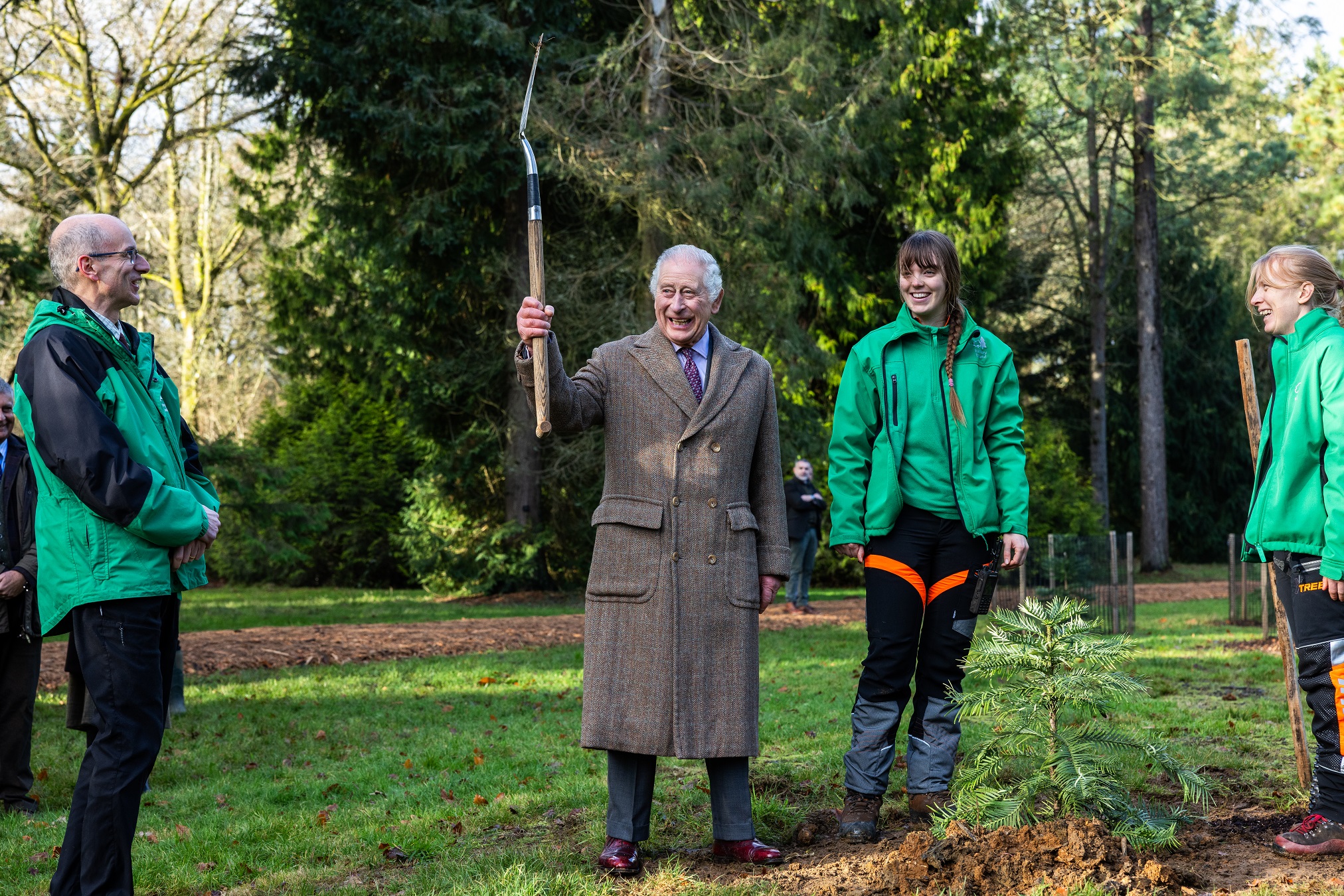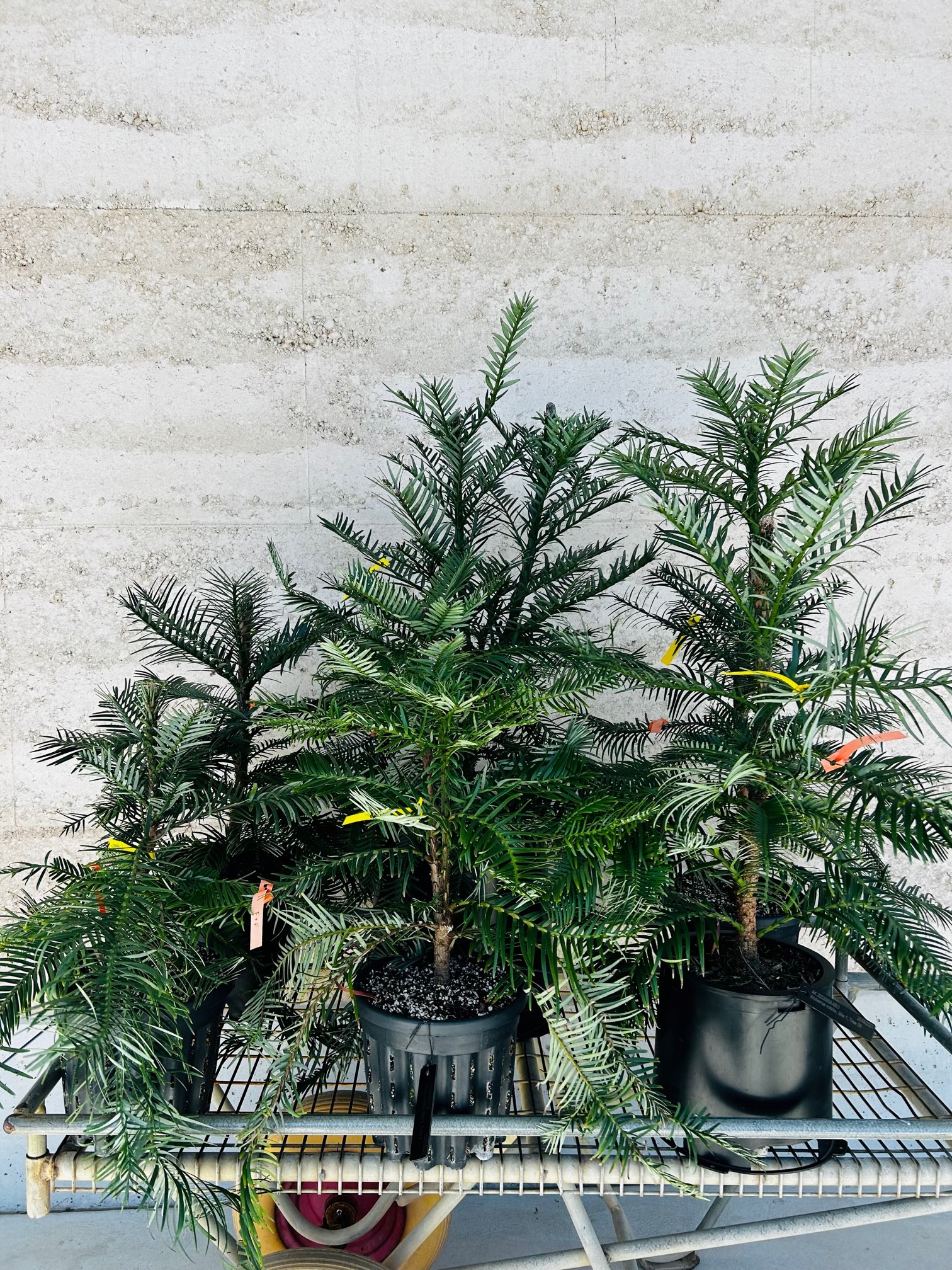30 years since historic discovery of ancient dinosaur trees: Wollemi Pine trees Auction
The legendary Wollemi Pine (Wollemia nobilis) has captivated the world since its discovery in the Blue Mountains in 1994. Three decades later, its survival story is not over with the critically endangered conifer still at serious risk of extinction.
A comprehensive back-up collection of Wollemi Pines – one of the world's rarest and oldest trees – was planted at Blue Mountains Botanic Garden Mount Tomah on the 30th anniversary of its serendipitous discovery.
The special planting was not far from Wollemi National Park and the secret and secluded canyon in the Greater Blue Mountains World Heritage Area where just 46 adult trees and 43 juveniles remain in the wild, and will provide the most genetically diverse source of seed for future research and conservation.
Despite the Wollemi Pine possessing amazing survival adaptations that have allowed it to persist for millennia, the species is considered critically endangered and faces many threats in the wild. Its limited geographic distribution and small population size makes it extremely vulnerable to wildfires and diseases including the deadly Phytophthora cinnamomi or 'root rot'. Unauthorised visits to the site also risk compromising the fragile wild population and ecosystem, which is an Asset of Intergenerational Significance.
To safeguard the ancient pine, a highly successful multi-agency conservation effort (involving NSW National Parks and Wildlife Service, Botanic Gardens of Sydney, and NSW Department of Climate Change, Energy, the Environment and Water) has focused on two main strategies: protection and conservation of the remaining wild population, and off-site cultivation.
Two additional populations of Wollemi Pine established in Wollemi National Park in 2019 using translocation, were further augmented this year with 379 saplings each, bringing the total translocated population to over 835 saplings. Minister Penny Sharpe recently visited one of the translocation sites to see this work first hand, and plant a tree which she dedicated to young environmental activists.
As part of the insurance policy against the extinction of Wollemi Pines, scientists from Botanic Gardens of Sydney established a genetically diverse living collection of Wollemi Pine at the Australian Botanic Garden Mount Annan.

Wollemi pine (Wollemia nobilis) seeds and cones - Female cones translocation site. Image Credit: Heidi Zimmer
To back up this essential collection and provide greater resilience to potential impacts of climate change, genetically diverse young trees were cultivated and shipped to botanic gardens in the United Kingdom, Ireland, Europe and one botanic garden in the USA, last year.

King Charles III planting a Wollemi Pine as part of 30th anniversary celebrations. Photo: NSW Dept. of Environment and Heritage
The Mount Tomah planting is the latest chapter in the Wollemi Pine's survival story, providing an essential local, cool-climate back up of the Mount Annan living collection.
This planting is one of several key objectives identified in the draft National Recovery Plan for the Wollemi Pine that will be finalised later this year. The public will have a rare opportunity to own a piece of living history. Six exclusive Wollemi Pine trees, propagated by a team of expert scientists from the original, first-generation specimens, will be auctioned online by Foundation & Friends of the Botanic Gardens from September 9 – 22 September, coinciding with this special planting event.
To place a bid please visit: airauctioneer.com/wollemi-pine-auction

The Wollemi's that form the six trees up for auction. Photo: courtesy NSW Dept. of Environment and Heritage
NSW Minister for the Environment and Heritage Penny Sharpe said:
"Since this ancient tree was discovered by David Noble, an off-duty National Parks and Wildlife Service ranger, the global effort to save the Wollemi Pine has set a new benchmark for conservation.
"With so few of these trees remaining in the wild, the risk of losing the entire population to a single catastrophic event such as disease or wildfire is high. That is why the translocated populations and the off-site living collections are so critical.
"I have been privileged to see these sites first-hand. As we trekked into the secret location, we had to stop multiple times to disinfectant our shoes. While our boots might not have survived, the memory of that special place will stay with me forever."
NSW Minister for Planning and Public Spaces Paul Scully said:
"The Wollemi Pine is one of the greatest botanical discoveries of our time and has become an Australian icon.
"This spring, we reflect on three decades of critical work by scientists, national park rangers and horticulturists to understand the Wollemi Pine and protect it for future generations."
"I would like to acknowledge the work of the Royal Botanic Gardens over the years to preserve this important species."
Botanic Gardens of Sydney Chief Executive, Simon Duffy AM, said:
"We often describe the Wollemi Pine as the poster child for conservation. These ancient trees have become a symbol of survival and hope," Mr Duffy said.
"The special tree planting at the Blue Mountains Botanic Garden Mount Tomah and other anniversary events are about celebrating the outstanding contributions made by so many people to the science and conservation of this remarkable species."
Botanic Gardens of Sydney Chief Scientist, Professor Brett Summerell AM, said:
"The Wollemi Pine is a botanical treasure; its discovery has not only yielded incredible scientific insights but also raised the profile of botanical science," Prof Summerell said.
"This is the culmination of 30 years of scientific research on the Wollemi Pine. Genetically diverse plantings such as this one aim to maximise health and adaptive resilience to climate change and other pressures. I hope it will also allow visitors to form meaningful connections with plant conservation."